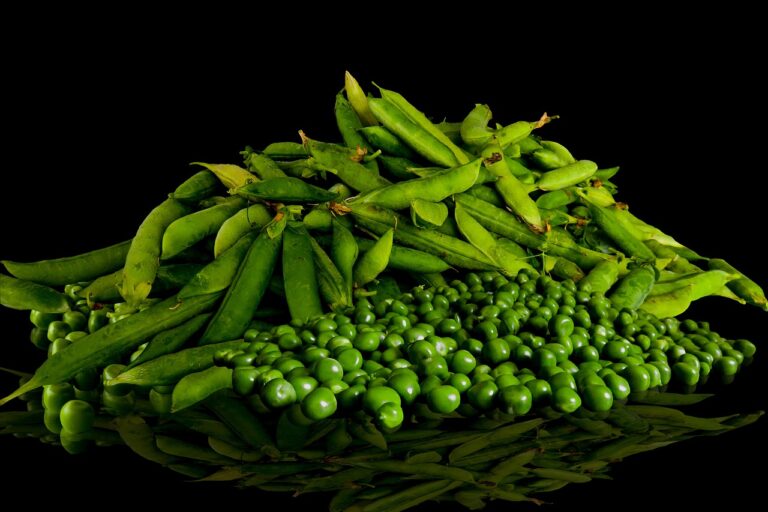The Role of Food Additives in Sustainable Food Distribution Systems
all panel mahadev book, lotus bhai 365 login, allpaanel: The Role of Food Additives in Sustainable Food Distribution Systems
As the global population continues to rise, the demand for food is increasing at an unprecedented rate. This growth presents a significant challenge for food distribution systems, as they must find ways to efficiently deliver food to a growing number of people while minimizing waste and environmental impact. Food additives can play a crucial role in helping to achieve these goals.
What Are Food Additives?
Food additives are substances that are added to food products to improve their taste, texture, appearance, or shelf life. They can be natural or synthetic and are used in a wide range of products, from packaged foods to fresh produce. Some common food additives include preservatives, antioxidants, flavor enhancers, and colorants.
How Do Food Additives Contribute to Sustainable Food Distribution Systems?
1. Extended Shelf Life
One of the key benefits of using food additives is that they can help to extend the shelf life of food products. By slowing down the growth of bacteria and other microorganisms, additives like preservatives can prevent food from spoiling quickly. This extended shelf life can reduce food waste and improve the sustainability of food distribution systems.
2. Improved Food Safety
Food additives can also play a crucial role in ensuring the safety of food products during distribution. Antioxidants, for example, can help to prevent the oxidation of fats and oils, which can lead to the formation of harmful compounds. By using antioxidants, food manufacturers can help to protect the quality and safety of their products during transportation and storage.
3. Enhanced Flavor and Texture
In addition to improving the shelf life and safety of food products, additives can also enhance their flavor and texture. Flavor enhancers like monosodium glutamate (MSG) can help to bring out the natural flavors of ingredients, while texture modifiers can improve the mouthfeel of processed foods. By using additives to enhance the sensory qualities of food products, manufacturers can help to increase consumer satisfaction and reduce food waste.
4. Facilitated Distribution
Food additives can also help to facilitate the distribution of food products by making them easier to transport and store. Anti-caking agents, for example, can prevent powdered products from clumping together, while emulsifiers can help to stabilize mixtures of oil and water. By using additives to improve the physical properties of food products, manufacturers can make them more resistant to damage and spoilage during distribution.
5. Reduced Environmental Impact
By extending the shelf life of food products and reducing waste, food additives can help to minimize the environmental impact of food distribution systems. Wasted food contributes to greenhouse gas emissions and uses valuable resources like water and land. By using additives to preserve the quality of food products and reduce waste, manufacturers can help to make food distribution more sustainable.
6. Cost-Effectiveness
In addition to their environmental benefits, food additives can also be cost-effective for food manufacturers. By using additives to extend the shelf life of their products, manufacturers can reduce the need for costly refrigeration and other preservation methods. This can help to lower production costs and make food distribution more efficient and affordable.
FAQs
Q: Are food additives safe to consume?
A: Most food additives that are approved for use by regulatory agencies like the Food and Drug Administration (FDA) are considered safe for consumption at the levels typically found in food products. However, some people may be sensitive or allergic to certain additives, so it’s essential to read ingredient labels and consult with a healthcare professional if you have concerns.
Q: Can food additives be used in organic food products?
A: While organic food products generally do not contain synthetic additives, some natural additives can be used in organic foods to enhance their quality and safety. These additives must be approved for use in organic products by certifying agencies like the USDA.
Q: How can consumers make informed choices about food additives?
A: Consumers can educate themselves about food additives by reading ingredient labels, researching the safety and function of specific additives, and choosing products with minimal additives whenever possible. It’s also important to support companies that prioritize transparency and sustainability in their food production practices.
In conclusion, food additives play a vital role in sustainable food distribution systems by extending the shelf life of products, improving food safety, enhancing sensory qualities, facilitating distribution, reducing environmental impact, and lowering production costs. By using additives responsibly and ethically, food manufacturers can help to create a more efficient, resilient, and environmentally friendly food supply chain for the future.







